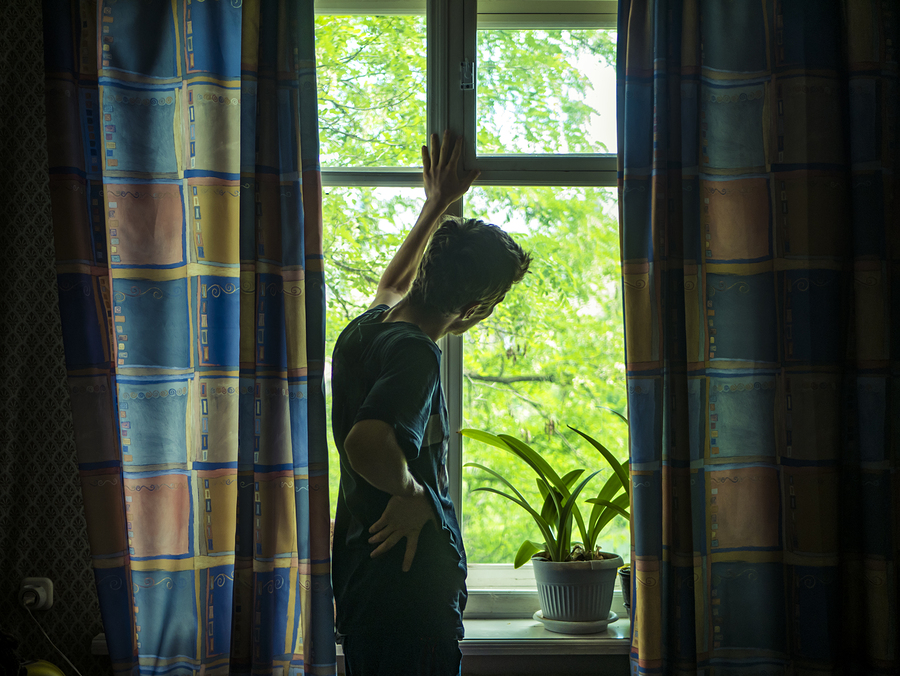
It is becoming more and more evident that dual-diagnosis is crucial for many individuals battling drug addiction. There is a significant correlation between addiction and mental illness.
This is the case with most mental illnesses, but perhaps none more so than with bipolar disorder. Studies have indicated that as many as 60% of people suffering from bipolar have abused substances.
In other words, if you suffer from bipolar, there is a significant chance you will battle addiction at some point. There is no clear evidence of a neurological link between the two, but there are a lot of circumstantial reasons why someone suffering from bipolar disorder might get addicted to drugs.
Let’s take a brief look to understand what exactly bipolar disorder is, before discussing its co-occurrence with drug addiction and how treatment centers approach both.
What Is Bipolar Disorder?
Formerly known as manic-depression, bipolar disorder is a mental illness that affects an individual’s moods. Someone with bipolar disorder will go through alternate phases of depression and mania. Contrary to many misconceptions, people affected don’t generally cycle through different moods, but rather spend prolonged periods of time suffering from one or the other.
Depression presents in bipolar disorder as it does on its own. The individual has difficulty feeling pleasure, lacks motivation, and feels intense sadness. They may consider suicide or, in the worst case scenario, take their own life.
Mania, on the other hand, presents as a kind of euphoria. The individual feels immense confidence and ecstasy. They feel invincible and act impulsively. They have trouble falling asleep, as they feel “wired” constantly. They may begin to have delusions of grandeur and see patterns or connections that do not exist.
While mania may feel good for a while, it is no less an affliction than depression, and can lead many towards terrible decisions that ruin their own lives and those of others.
Considering some of the symptoms of bipolar disorder, it is not too difficult to see its connection to drug addiction.
Bipolar Disorder And Addiction
Impulsivity and Invincibility
Perhaps the most clear-cut reason people suffering from bipolar disorder become addicted to drugs is that they feel invincible and act impulsively. In a normal state, they may never have considered using certain drugs, but at the top of the wave of mania, they may struggle to see why not. They feel confident that they will not become addicts, or that addiction could never harm them. They also struggle with impulse control, doing what feels good in the belief that they will never stop feeling good.
Hyperactivity
On the other hand, people suffering from mania struggle to “turn off.” The highs can feel amazing for a while, but it becomes difficult to fall asleep, calm down, and focus. They may be getting things done, but even ecstasy can eventually start to hurt. Many bipolar people start using sleeping pills or tranquilizers to try and deal with this problem. These pills can be addictive even when taken responsibly. When taken as a quick-fix, by someone already struggling with impulse control, addiction is all-too-common.
Chasing The High
In many ways, mania resembles the high of certain drugs. Ecstasy or MDMA produces a euphoria like that of mania. Cocaine gives people confidence and drive. When someone is in the midst of a manic episode, they may use drugs in fear that the high will end. When the high eventually does come to an end, they may use drugs to try and reclaim that feeling.
Depression
During a depressive episode, the person suffering may be willing to do anything to feel good again. Even if they did not have memories of mania to cling to, the pain of depression is bad enough to drive many people to use substances. This is not necessarily because they are unaware of the risk of addiction or overdose, but because life does not seem bearable without them. After all, a disease that has caused millions of people to commit suicide is very powerful indeed. Those suffering may be trying to chase the high of mania, but in all likelihood they would settle for just feeling okay. Drugs are very attractive when nothing else is working.
Substance-Induced Bipolar Disorder
It is also often claimed that that, on the flip side, drug use can lead to bipolar disorder. It is not always easy to determine which came first, but there is significant evidence that drug use – including use of marijuana – sometimes induces bipolar disorder or schizophrenia.
The Effects Of Drug Abuse On Bipolar Disorder
Many individuals with bipolar disorder start using drugs in a conscious or unconscious effort to regulate their emotions. Unfortunately, the reality is that drug abuse only worsens the symptoms of bipolar disorder. Episodes become more intense and last longer. There is increased risk of suicide. And it becomes more difficult to effectively treat either illness.
Treating Co-Occurring Disorders
When someone is suffering from both bipolar disorder and drug addiction, it is not possible to treat only one of the problems. Without treating the bipolar disorder, cessation of drug use is bound to be temporary. If you only treat the bipolar disorder, however, drug use will lead to renewed emotional instability.
Addiction experts have found that treating co-occurring disorders in parallel is often ineffective. Rather, both disorders should be treated together, by the same team of professionals. This way, a holistic treatment plan can be designed, that will not be undermined by one disorder or the other.
The individual will have a much easier time keeping track of their own progress, in both areas. They will not have to decide whether one is more important than the other. The treatments will seamlessly intersect, leading to a more complete recovery.
Bipolar disorder often leads to substance abuse, and substance abuse can induce bipolar disorder in some individuals. Treating them together is important, if the person is to have a complete, lasting recovery.